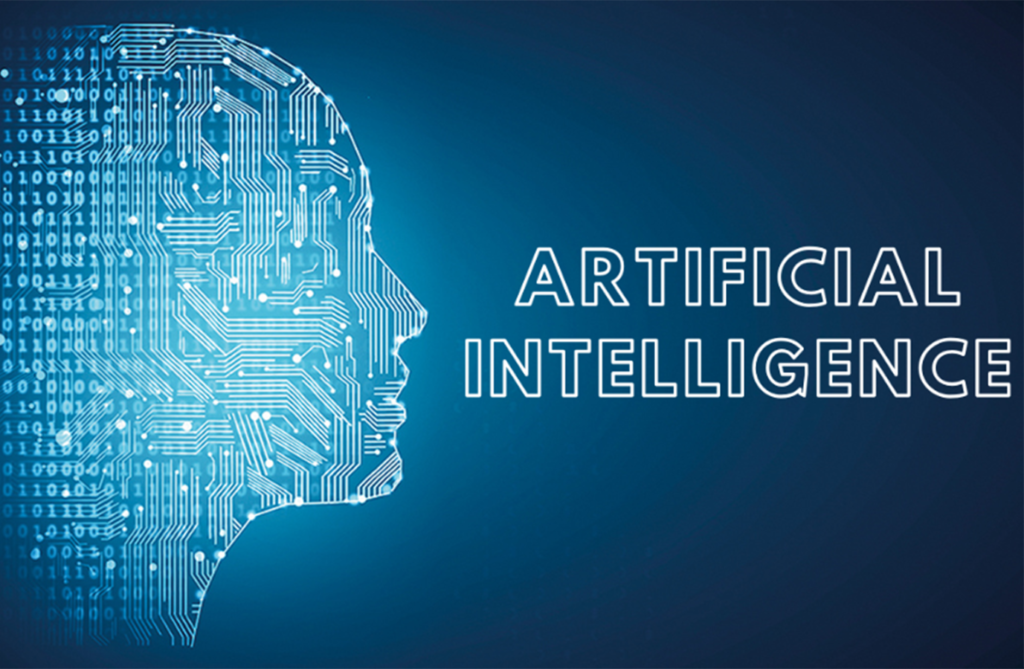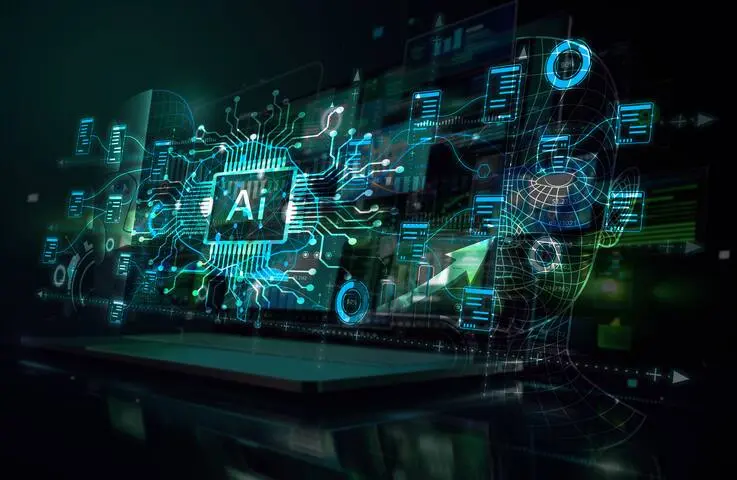Introduction
Artificial Intelligence (AI) has evolved from a mere catchphrase to a revolutionary force that is changing entire businesses, entire civilizations, and the way we interact with the world. AI is playing a key role in propelling the next phase of technological advancement, from self-driving cars and advancements in healthcare to the automation of intricate commercial and financial processes. The emergence of AI, its major advancements, and its potential to reshape the future are all examined in this article.
1. Understanding Artificial Intelligence
Fundamentally, artificial intelligence is the ability of technology, especially computer systems, to simulate human intelligence processes. These include self-correction, reasoning (the capacity to solve issues and make judgments), and learning (the process of gaining knowledge). Artificial intelligence (AI) systems are made to carry out tasks like language comprehension, pattern recognition, prediction, and environment adaptation that normally call for human intelligence.
- AI systems that are Artificial Intelligence created and trained to carry out particular tasks are referred to as narrow AI (weak AI). Software for facial recognition, language translation, and virtual assistants like Alexa and Siri are a few examples.
- General AI (Strong AI) is the hypothetical type of AI that, like humans, is capable of comprehending, learning, and applying intellect to a wide range of tasks. Although it hasn’t been achieved yet, general artificial intelligence is still a target for many researchers.
A key factor in this progression has been the quick development of machine learning, a branch of artificial intelligence. Through data analysis, machine learning enables machines to gradually improve their performance without requiring explicit programming for each task. Deep learning is another innovation that has increased AI’s potential by simulating the neural networks seen in the human brain.

2. The Rise of AI: From Concept to Reality
The origins of artificial intelligence can be discovered in the 1950s, when pioneers such as Alan Turing and John McCarthy established the groundwork for the eventual study of the subject. The renowned Turing Test, which assesses a machine’s capacity to display intelligent behavior that is either identical to or indistinguishable from that of a human, was developed as a result of Turing’s pioneering research on the idea of a machine that could mimic any human mental process.
But AI didn’t start to go from theoretical models to real-world applications until the late 20th century. In the early 2000s, a surge of innovation was spurred by the creation of increasingly complex algorithms, the availability of enormous datasets, and advancements in computing power.
- 2006: As researchers showed how artificial neural networks could be trained to detect voice, sounds, and images with previously unheard-of accuracy, the phrase “deep learning” gained popularity.
- 2016: Once believed to be beyond computer capabilities, AlphaGo, a deep-learning AI created by Google DeepMind, defeated the world champion of the antiquated board game Go.
AI is currently being incorporated into a broad range of sectors, including manufacturing, entertainment, banking, and agriculture. AI is now a key force behind innovation, marking a dramatic change in technology paradigms.
Also Read: https://trendspotter.online/ecommerce-excellence-growing-your-business/
3. Applications of Artificial Intelligence Across Industries
AI has a wide range of possible uses that are growing every day. The following are some of the most significant fields in which AI is having an impact:
Healthcare
AI is revolutionizing medication research, diagnosis, and treatment planning in the healthcare industry. AI systems can evaluate medical data, including MRIs, X-rays, and patient records, to help physicians diagnose illnesses more quickly and precisely. Artificial intelligence (AI)-powered solutions can forecast health hazards, track patient vitals in real time, and even suggest individualized treatment regimens.
For instance, IBM Watson Health helps physicians find the best medicines by using AI to evaluate enormous volumes of patient data and medical literature. AI is also being utilized in drug discovery, which expedites the process of finding potential chemicals for novel drugs.
Autonomous Vehicles
The creation of self-driving automobiles is among the most well-known uses of artificial intelligence. Automakers like Tesla, Waymo (an Alphabet subsidiary), and Uber are leading the way in developing AI-powered autonomous cars that can safely navigate roadways without the need for human assistance.
In order to comprehend their environment, make decisions, and operate the vehicle on their own, self-driving cars use sensors, machine learning algorithms, and real-time data processing. This might completely transform transportation by lowering collision rates, increasing fuel economy, and facilitating travel.

Business and Finance
AI is advancing automation, increasing client experiences, and boosting decision-making in the business sector. Human customer care agents are becoming less necessary as chatbots and virtual assistants driven by AI are employed to answer consumer questions. AI is used in retail to tailor shopping experiences by making product recommendations based on customer interests and behavior.
With its applications in algorithmic trading, fraud detection, risk management, and credit scoring, artificial intelligence (AI) is also a major player in the financial industry. Artificial intelligence (AI) systems may find patterns and forecast outcomes by evaluating massive information in real time, which aids businesses and financial institutions in making better decisions.
Manufacturing and Industry 4.0
The fourth industrial revolution, known as Industry 4.0, is centered on artificial intelligence (AI) and entails integrating smart technologies into manufacturing processes. Supply chain optimization, AI-driven robots, and predictive maintenance are turning factories into incredibly productive, self-sufficient spaces. AI can keep an eye out for wear and tear on machinery, anticipating problems before they arise and cutting down on downtime.
AI-powered systems can also enhance quality control, streamline production schedules, and even use generative design to create new goods.
Also Read: https://trendspotter.online/blockchain-digital-backbone-a-new-world-order/
Entertainment and Content Creation
AI is causing a stir in the entertainment sector as well. AI is fostering creativity in previously unheard-of ways, from producing realistic special effects in films to producing music. AI-powered tools, such as OpenAI’s GPT-3, are capable of producing scripts, articles, and even poetry.
Based on customer preferences, AI algorithms are used by streaming services such as Netflix and Spotify to suggest films, TV series, and songs. One of the main causes of these platforms’ explosive growth in recent years has been these tailored recommendations.
4. The Challenges and Risks of AI
Notwithstanding its many benefits, the emergence of AI poses a number of hazards and difficulties that need to be managed to guarantee its ethical application.
Job Displacement
The possibility of job displacement is one of the most urgent issues with AI. There is concern that many jobs, especially those in low-skilled industries like manufacturing, customer service, and retail, may disappear as AI continues to automate tasks that have historically been completed by humans.
Workers will need to be retrained and reskilled to adjust to the shifting nature of the labor market, even if AI will surely lead to the creation of new job possibilities in domains like data science, robotics, and AI research.
Also Read: https://trendspotter.online/seo-proven-tactics-websites-visibility/
Ethical Concerns
Many ethical concerns are brought up by AI, especially in relation to decision-making procedures that have an effect on human life. How can we guarantee that AI systems deployed in law enforcement or healthcare, for instance, make impartial and equitable decisions? How can we stop the development of autonomous weapons or the abuse of AI in surveillance?
To guarantee that AI is created and applied in ways that benefit society as a whole rather than being utilized for detrimental ends, ethical standards and laws are crucial.
Data Privacy and Security
Large volumes of data are necessary for AI systems to learn and forecast. Sensitive personal data may be utilized without authorization or protection, which poses privacy concerns. A key component of AI systems’ future growth will be making sure they are safe, transparent, and considerate of user privacy.

5. The Future of AI: A New Dawn in Technology
AI has enormous potential to change the world as it develops further. From increasing the effectiveness of current systems to aiming for the creation of Artificial General Intelligence (AGI), which may be able to carry out every intellectual endeavor that a human is capable of, researchers and developers are pushing the limits of artificial intelligence.
AI will probably be incorporated into even more facets of daily life over the course of the next few decades, from space exploration and environmental sustainability to individualized education and healthcare. Humanity may be able to address some of the most important issues of our day, like as poverty, illness, and climate change, by utilizing AI.
But we must approach the advent of AI responsibly and cautiously. Governments, corporations, researchers, and the general public will need to work together to ensure that AI advances society while lowering its risks.
In summary, artificial intelligence (AI) is more than just a new technology; it marks a paradigm shift in how we think about creativity, problem-solving, and even intelligence itself. There are countless opportunities as we stand on the brink of this new era, but there are also countless challenges. The legacy of AI and its effects on future generations will depend on how we handle this exciting but unpredictable future.
Conclusion
Unquestionably, artificial intelligence has ushered in a new era of technological innovation, altering our everyday lives and influencing industries in ways that were previously unthinkable. AI is proven to be a vital tool in our pursuit of efficiency, creativity, and problem-solving, from advances in healthcare and driverless cars to intelligent virtual assistants and improved manufacturing processes. But like any revolutionary technology, the emergence of AI also presents significant obstacles, from algorithmic prejudice and data privacy difficulties to employment displacement and ethical dilemmas.
It is obvious that artificial intelligence (AI) will continue to play a crucial role in determining the direction of civilization as we stand on the precipice of this new technological era. However, there are challenges in this future. Working together is the key to optimizing AI’s advantages while lowering its hazards. To create ethical frameworks, address issues of justice and security, and make sure AI technologies are developed to improve rather than degrade human well-being, policymakers, corporations, researchers, and society at large must collaborate.
Although the future will need cautious management, if AI is properly used, it has the ability to not only revolutionize sectors but also assist in resolving some of the most important problems facing the globe, such as combating climate change, developing healthcare, or enhancing international education. Ultimately, AI is a collaborator on our path to a more intelligent, sustainable, and connected society, not only a tool. The promise of AI is still enormous, and its ability to change the future is only just starting to materialize as we welcome this new era of technology.
